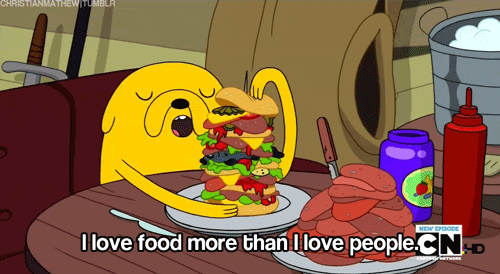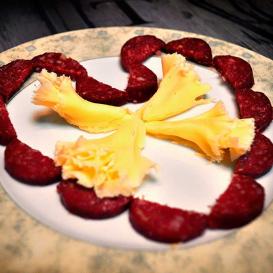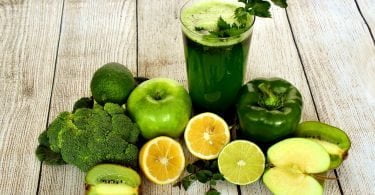As Food & Drink editor for Kettle Magazine it always astounds (and upsets) me how little interest people have in writing about food. They’re perfectly happy to talk about it, share stories about it and they’re even more content to eat it, but when it comes to putting those opinions down onto paper, celebrity scandal and political problems always take precedence over articles about food.
I’m a foodie, in every definition of the word, and that’s probably why I find the general nonplussed reaction to Food & Drink as a journalistic category quite hard to grasp. Food is a constant in our lives, we’re involved with it every day, and we need to start considering it as something worthwhile reporting on. Food has opportunities for advancement, it can be beautiful and stylish, it can provide pleasure, it can divide nations. It’s all elements of the news front page in one.
But in order for Food & Drink to take the podium that it deserves, it needs to be better understood and enjoyed. By viewing food as something tangible, rather than something necessary, every meal becomes an experience, and every restaurant becomes an intricate story that we journalists can capture. It’s time to start the food revolution amongst writers. And here’s how we’re going to do it.
1) Think before you eat
If eating is the one thing we all do daily, why aren’t more of us interested in it? One reason is that not enough people think about what they put in their mouths before they do it. For too many people, eating has become a routine, not something enjoyable or interesting. There’s nothing wrong with liking your local sandwich place, but that doesn’t mean you have to eat there every day of the week. Putting a little thought into your meals provides variety, and starts making food interesting again.
If the only thing you have time for during the week is a bowl of cereal, then plan your weekends. There are loads of fun food blogs that use accessible ingredients, and have great suggestions for easy, tasty breakfasts. Plan ahead a little and you’ll soon start looking forward to your meals again.
2) Think while you eat
A huge number of people plough through their meals without tasting anything. Either the food is mundane or there are other distractions involved, like the computer or TV, but we’re eating 25% more food than we should per meal, without even enjoying it. Crazy! Choosing and talking about food is as much of a joy as eating it – there’s an inner food critic in all of us and bringing it out can satisfy a lot of urges (both foodie ones and bitchy ones).
Even if you’re just popping to Starbucks for one of their new Christmas lattes (Toffee Nut wins my vote) have a good think about the flavours and overall atmosphere. Try to write a little post or even a tweet about it. It sounds lame, but you will really start to connect with your food and begin to understand what you like/dislike and why. Having a greater understanding of flavours, textures and what you feel like eating and when can help prevent overeating or binge eating. Everyone wins.
3) Be seasonal
Eating seasonal food seems completely unfeasible for a lot of us, particularly if you’re on a budget. But eating seasonally is also an amazing way to keep your diet varied, fresh and exciting, and it doesn’t have to cost a fortune. The Eat Seasonably calendar is a completely free and colourful way to see what’s in season, even fruit and veg that doesn’t cost a lot. It’s a great way to start structuring your meals throughout the year and makes grocery shopping that little bit more interesting.
Another way to eat seasonally is to observe some foodie traditions that you might not be used to. For example, October and November are the months for pumpkin in the USA, with Halloween and Thanksgiving taking precedence. Pumpkin isn’t a common flavour in the UK, but is widely available. Try some of these yummy baked pumpkin goodies to spice up your winter treats.
4) Be a super saver
Part of the joy of eating is dining out and not having to cook for yourself all the time, but too many of us are put off exploring the restaurant world because it seems too expensive. But eating out doesn’t have to cost a fortune. It’s all about research and finding the best deals, so you can eat out with friends without worrying.
A lot of mainstream newspapers and magazines have sections about cheap eats in your town. You’ll be surprised at how many cheap and quirky places there are nearby, that serve great food you may not have tried before. Don’t be afraid to venture down alleys or into shopping complexes – there are hidden food gems lurking everywhere, and scouting them out makes the final meal even better. You can also visit websites like VoucherCodes for great value deals throughout the week – leaving the weekends free for some home cooking.
5) Share the love
None of the above is really valid unless you share your foodie experience with someone. Being really passionate about what you’re eating is even better when shared with others, because your experience lives on through them. You’re more likely to try a new recipe or a new restaurant if someone else is going along with you – they’re your motivation and encouragement for learning to love your food again. If you and some friends are stuck in a food rut, make a pact to change your ways together. Host a Come Dine With Me style dinner, form a breakfast club or make it your mission to find a new foodie hot spot.

Food is important, essential, exciting, daring and, most importantly, freaking delicious. If you can share a common interest with anyone, it’s probably going to be a food of some kind. Food unites us, entertains us and can make us really happy, and it deserves to be talked about and written about more. If you eat every day but have no interest in food, chances are your foodie life needs some spicing up. Start experimenting and exploring new avenues of food, and watch things improve a little every day. After all, by understanding food a little better, you’ll be able to take more control of what you put into your body. Not only will you feel healthier and happier, but everything you eat will be that much more enjoyable. Long live Food & Drink!









